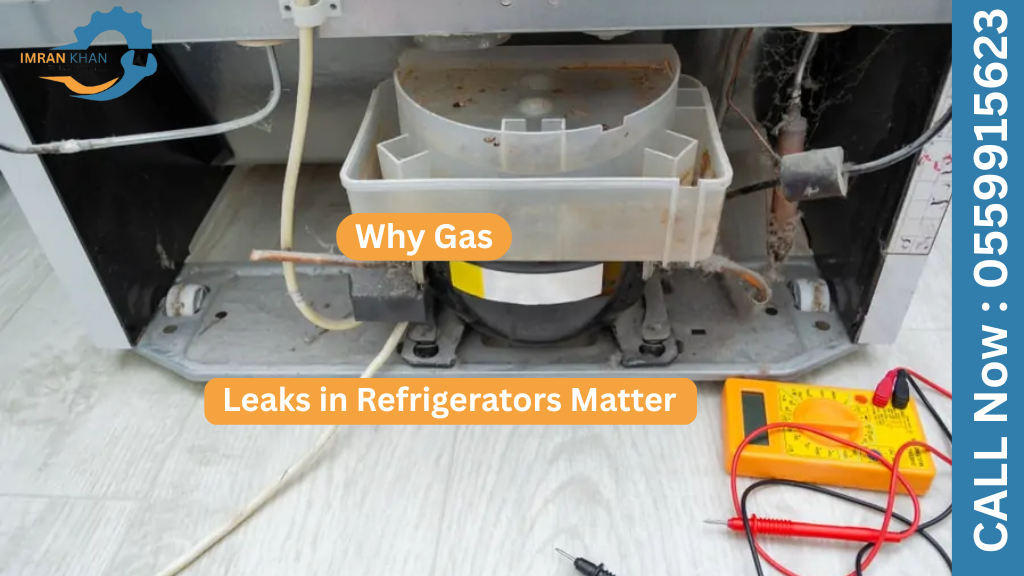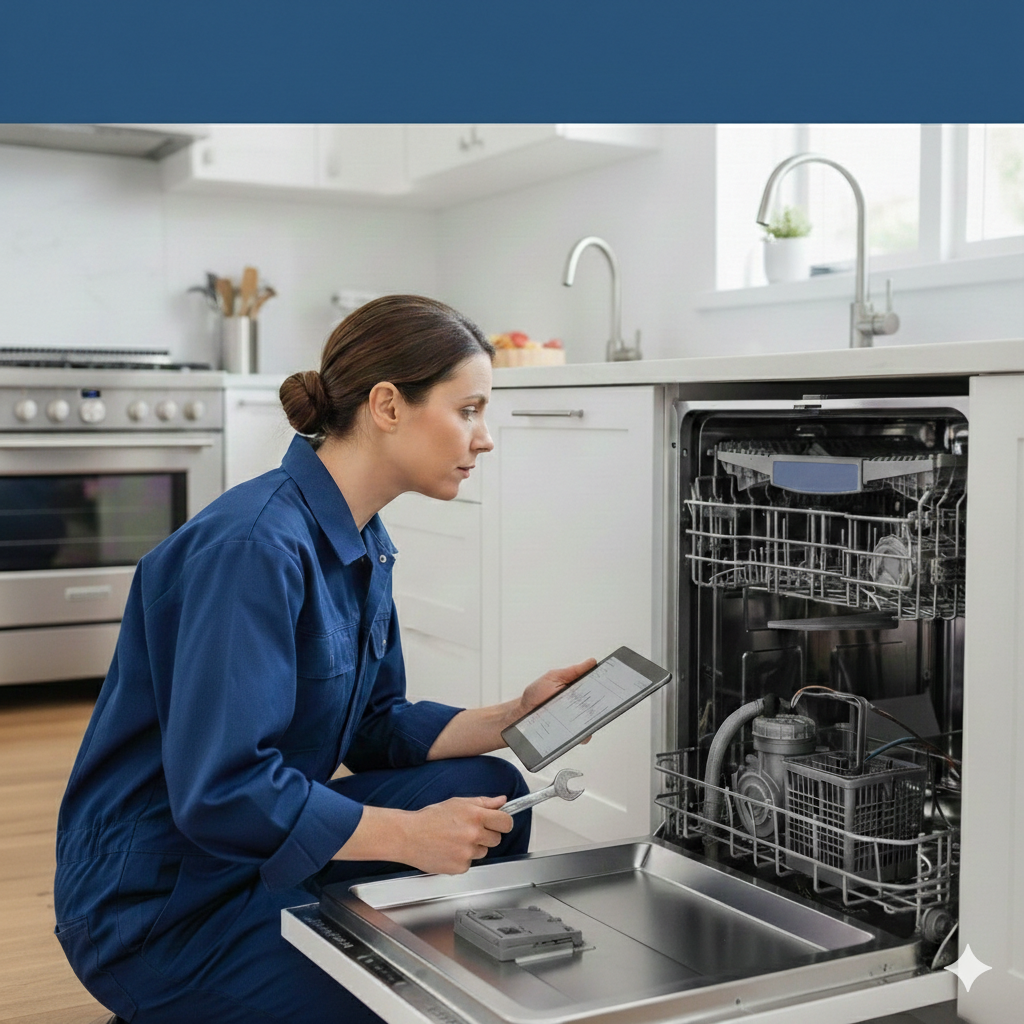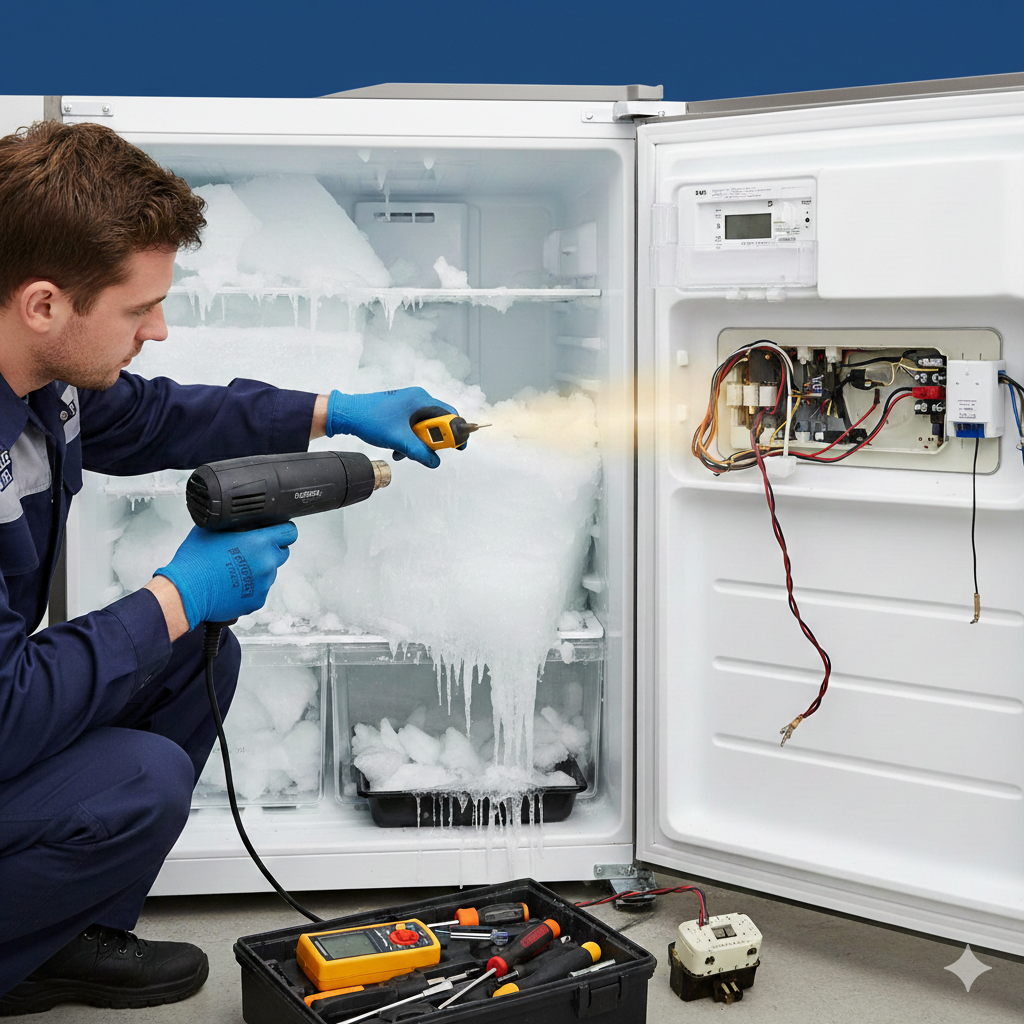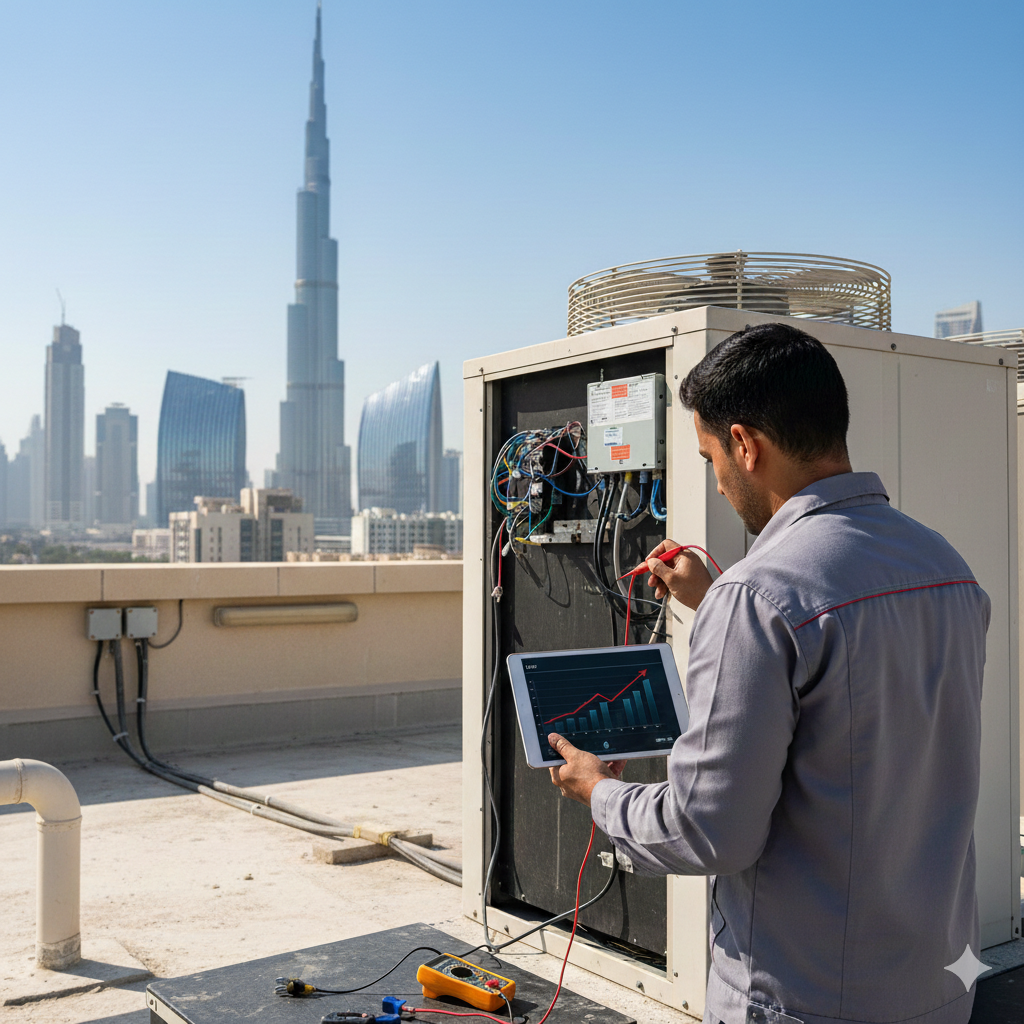Opening Hook
It was a late summer evening when Omar noticed something odd in his Dubai apartment. His fridge, once the most reliable appliance in his kitchen, wasn’t cooling as it used to. The milk spoiled faster, the vegetables wilted, and the ice tray never froze completely. At first, he thought it was just overloaded. But when he leaned closer, he caught a faint, unusual chemical-like smell. What he didn’t know at that moment was that he might be facing a gas leak in his refrigerator—an issue more common (and dangerous) than many homeowners realize.
Why Gas Leaks in Refrigerators Matter
Refrigerators work by circulating refrigerant gas (commonly Freon or other modern eco-friendly alternatives) through coils to absorb heat and keep the inside cool. If that gas leaks, the fridge loses its cooling power.

But the consequences go beyond warm food. Gas leaks can:
- Lead to higher electricity bills as the fridge struggles to work harder.
- Cause health issues such as headaches, dizziness, or nausea if the leaked gas builds up in a poorly ventilated area.
- Damage the environment, since some refrigerants are harmful greenhouse gases.
In other words, spotting a gas leak early is not only about saving your groceries—it’s about protecting your family’s health and reducing long-term costs.
Common Signs of a Gas Leak in Your Fridge
The first step in checking for leaks is knowing what to look for.
- Weaker Cooling
When your fridge isn’t staying cold despite the thermostat being set correctly, it’s a strong hint that the refrigerant level is dropping. For example, Omar’s fridge couldn’t keep drinks chilled, even though the compressor ran nonstop. - Unusual Smells
While many refrigerant gases are odorless, sometimes leaks mix with oil residues inside the appliance, creating a sharp, chemical-like odor. - Hissing or Bubbling Noises
If you hear faint hissing from the back of your fridge or near the freezer, that could be the sound of gas escaping. - Oily Residue Around the Fridge Coils
Refrigerant is often mixed with lubricating oil. A visible oily patch on the tubing or near the compressor is a red flag. - Food Spoiling Too Quickly
If milk curdles in a day or ice cream becomes soup-like, the fridge is struggling—sometimes due to a gas leak.
How to Check for Gas Leaks Safely at Home
Now that you know the warning signs, how can you actually confirm if your fridge has a leak? Here are some safe, practical methods:
1. The Soap and Water Test
This is a simple DIY method.
- Mix dish soap with water in a small bowl.
- Dip a sponge or cloth in the mixture and apply it to the suspected area (usually the coils or joints at the back).
- Watch closely. If bubbles form and expand, gas is escaping through a leak.
For instance, one Motor City resident shared how he spotted bubbles forming near the compressor pipe connection—something he wouldn’t have noticed without this easy trick.
2. Listen Closely
Turn off any background noise in your kitchen and listen to your fridge. A faint, continuous hissing or gurgling that doesn’t match the usual hum of the motor can point toward escaping gas.
3. Temperature Monitoring
Place a thermometer inside the fridge and freezer compartments. If the temperature keeps rising despite the fridge running, it’s a strong indication that the refrigerant isn’t circulating properly.
4. Look for Ice Buildup in Odd Places
Sometimes, a leak disrupts the refrigerant cycle, causing frost or ice to appear in unusual spots, like around the copper tubing at the back.
Safety First: What Not to Do
Checking for leaks is fine, but attempting to fix them without training can be dangerous. Refrigerant gas is pressurized, and handling it requires specialized tools.
- Never poke or cut coils to “see what’s inside.” This can cause injury and release more gas.
- Avoid using open flames or matches to “test” for leaks—refrigerants can react dangerously with fire.
- Don’t ignore the problem. Even a small leak can worsen over time, leading to a full breakdown of the appliance.
When to Call a Professional
If your tests suggest a leak, the next step is to call a certified appliance repair technician. Here’s why:

- Specialized tools: Professionals use electronic leak detectors and pressure gauges that identify leaks with precision.
- Safe handling of refrigerants: In Dubai, technicians are trained to handle refrigerants in compliance with environmental and safety regulations.
- Permanent fixes: A technician won’t just refill the gas; they’ll repair or replace the leaking component to prevent recurrence.
For example, one Dubai family assumed they just needed “more gas.” A local technician discovered a tiny crack in the evaporator coil. By replacing the coil and refilling the refrigerant, he saved them from repeated breakdowns—and higher repair bills down the road.
Preventing Future Leaks
The best way to deal with gas leaks is to avoid them in the first place. Preventive care goes a long way.
- Keep the coils clean: Dust buildup forces the system to overwork, increasing wear and tear on pipes.
- Don’t overload your fridge: Overstuffing blocks airflow, making the compressor run harder than necessary.
- Check seals regularly: If door seals are weak, the fridge strains to maintain temperature, raising pressure in the cooling system.
- Schedule annual maintenance: A technician can inspect connections, clean coils, and detect early signs of leaks before they become serious.
Real-Life Story: A Costly Lesson
Take the case of Samira, who ignored the early signs of her fridge warming up. Instead of calling for help, she kept adjusting the thermostat, thinking it was a minor issue. A month later, the fridge completely failed. By then, the gas had leaked so extensively that the compressor also burned out. What could have been a small repair turned into replacing the entire appliance.
Her story is a reminder that early detection and quick action can save not just money, but also the headache of living without a fridge for days.
Frequently Asked Questions (FAQs)
1. What are the common signs of a gas leak in a refrigerator?
Signs include weak cooling, unusual chemical-like smells, hissing or bubbling noises, oily residue near coils, and food spoiling faster than usual.
2. Can I check for a gas leak at home safely?
Yes, you can do simple checks like the soap-and-water test on coils and joints, listening for unusual hissing, monitoring temperatures, or looking for frost in odd places. Avoid handling refrigerant directly.
3. Why shouldn’t I try to fix a gas leak myself?
Refrigerant gas is pressurized and potentially hazardous. DIY repairs can cause injury, release harmful gas, or damage the fridge further. Only certified technicians should handle leaks.
4. When should I call a professional technician for a fridge gas leak?
If you notice signs of a leak, like poor cooling or hissing sounds, or if your at-home tests indicate a leak, call a certified technician immediately. They have the tools and expertise for safe repair and refilling.
5. How can I prevent gas leaks in my refrigerator?
Preventive measures include keeping coils clean, avoiding overloading, checking door seals regularly, and scheduling annual professional maintenance to detect leaks early.
Closing Thoughts
Your refrigerator may be one of the quietest appliances in your home, but when something goes wrong, the consequences are loud and clear—spoiled food, unexpected expenses, and health risks. Gas leaks are one of the most overlooked yet critical issues to watch for.
To recap:
- Pay attention to warning signs like weak cooling, odd smells, hissing sounds, or oily residues.
- Use simple at-home tests like soap and water, but don’t attempt DIY repairs.
- Call a certified professional as soon as you suspect a leak.
- Practice preventive care to avoid future problems.
The next time your fridge seems “off,” don’t dismiss it as just another appliance quirk. Sometimes, it’s your fridge whispering for help—and catching that whisper early could save you from a costly shout later.
Latest Post:
-
Dishwasher Repair Services for Loud Noises: Causes, Fixes & When to Call Experts
A dishwasher should make a steady, low hum while running. If yours suddenly starts grinding, rattling, buzzing, or screeching, it’s a clear sign something isn’t right. Strange sounds are often the first warning that an internal component is loose, blocked, or wearing out. Ignoring the noise may lead to bigger and more expensive damage later.…
-
Fridge Repair Services in Dubai: How to Fix Frost Build-Up and Faulty Thermostats
Refrigerators play a vital role in every home and business in Dubai, where high temperatures make food preservation essential. When a fridge starts developing frost build-up or suffers from a faulty thermostat, it can quickly turn into a costly problem if ignored. These issues not only affect cooling performance but also increase electricity consumption and…
-
How AC Repair Services in Dubai Can Reduce High Electricity Consumption
Living in Dubai means relying heavily on air conditioning for most of the year. With extreme temperatures and long summers, AC systems often run for hours without a break. While this ensures comfort, it also leads to one major concern for residents and businesses alike — high electricity consumption. Many people are surprised when they…



